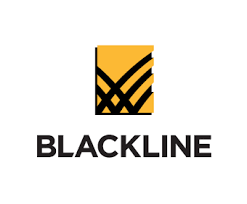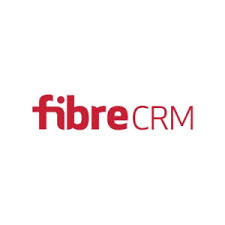Dealmakers and Data: Modernising Corporate Finance in Accounting Firms

Corporate finance teams in accounting firms are undergoing a profound transformation. Dealmakers and data are now interconnected in advisory work. They form the backbone of a modernised approach. This approach allows firms to act faster, smarter, and with greater confidence. The shift reflects client demand for more sophisticated insights. It also reflects the growing availability of technology that turns traditional accounting data into actionable intelligence. For corporate finance teams in accounting firms, embracing these tools is no longer optional, it is a competitive necessity.
Data as the New Strategic Asset
Accounting firms possess a wealth of financial information. This ranges from historical audit data to real-time management accounts. Corporate finance teams in accounting firms are learning to exploit this data strategically. Modern software platforms enable rapid extraction, cleaning, and structuring of client data. By automating previously manual tasks, teams can focus on interpreting results rather than chasing numbers. Firms report meaningful time savings from automation, with case studies showing firms automating up to 67% of recurring workloads in advisory functions after adopting workflow and data tools.
Technology Transforming Valuation and Modelling
Excel remains the default tool for modelling, but corporate finance teams in accounting firms are taking advantage of add-ins and plug-ins to improve accuracy and efficiency. These tools enforce version control, maintain template consistency, and integrate with live market data feeds. Connecting models to datasets such as S&P Capital IQ gives access to standardized financials across hundreds of thousands of companies, which speeds comparables and benchmarking. The result is faster, more reliable valuations and a reduced risk of error in high-pressure deal environments.
Securing and Streamlining Deal Execution
Virtual data rooms are a standard feature of deal execution, but modern solutions go far beyond simple file sharing. Corporate finance teams in accounting firms increasingly rely on platforms that combine secure hosting with analytics, redaction, and workflow features. The virtual data room market is expanding rapidly, reflecting growing use in M&A and due diligence, with market size estimates at roughly USD 2.1 billion in 2023 and strong projected growth. That scale matters because it underpins continuous product investment in security and analytics.
Client Engagement Through Analytics
Boards and investors increasingly expect interactive business intelligence dashboards instead of static reports. Corporate finance teams in accounting firms are leveraging tools such as Power BI to create visualisations that are both informative and intuitive. Dashboards let clients explore scenarios, monitor key metrics, and test assumptions in real time, which shortens the feedback loop and increases trust in adviser insight. Surveys indicate nearly 30% of organisations choose Power BI as their BI platform, highlighting adoption trends among finance teams.
Pipeline Management and Deal Origination
Technology also underpins the front end of corporate finance. CRM and deal pipeline tools enable accounting firms to track prospects, monitor engagement, and prioritise opportunities. Automated alerts for follow-ups reduce the risk of missed deadlines. Alerts for milestone completions also help in reducing the risk. Integrated databases ensure that no opportunity falls through the cracks. For mid-market deals, speed of response can determine success. Corporate finance teams in accounting firms are using tools that automate outreach. These tools also assemble pitch materials efficiently. Intapp DealCloud, for instance, offers a comprehensive platform. It manages relationships, transactions, processes, workflows, operations, and compliance in one intuitive interface. It has helped firms like Haven Capital eliminate 95% of manual data entry related to relationship management. It has also saved firms like Denning & Company 50% of time spent on daily activities.
Project Management and Workflow Efficiency
With multiple live transactions, corporate finance teams must juggle tight deadlines across analysts, associates, and partners. Project management tools standardise workstreams, assign ownership, and flag bottlenecks early. By codifying repeatable processes, firms reduce duplication and increase predictability. This approach frees senior staff to focus on strategy and client interaction, rather than administrative tasks, and ensures that resources are allocated efficiently across competing deals.
Security and Regulatory Compliance
In an environment where confidentiality is paramount, corporate finance teams in accounting firms are investing heavily in security. Multifactor authentication, encryption, and strict access controls protect sensitive information. Compliance tooling, including automated KYC and AML screening, reduces manual verification time and lowers regulatory risk. In high-stakes transactions, the robustness of a firm’s security and compliance framework can be a deciding factor for clients.
The Human-Technology Interface
Technology is an enabler, not a replacement. Corporate finance teams in accounting firms still rely on skilled professionals to interpret complex data, negotiate terms, and manage client relationships. The most successful firms combine technical proficiency with strategic insight. Training programs and structured knowledge transfer ensure that analysts and associates understand not only how to use tools but how to apply them in real-world scenarios.
Looking Forward
Dealmakers and data are now inseparable in modern corporate finance practice. Accounting firms that integrate technology into their advisory services can act faster. They reduce errors and provide more compelling evidence to clients. Automation and analytics do not replace judgement but amplify it, allowing corporate finance teams in accounting firms to deliver higher value across the transaction lifecycle.
Conclusion
Modernising corporate finance in accounting firms is about more than adopting new software. It is about building an integrated approach where dealmaking intelligence, data management, and secure collaboration work seamlessly together. Firms that treat technology as a strategic asset rather than a back-office convenience position their corporate finance teams to win in a market where speed, insight, and precision define success.





